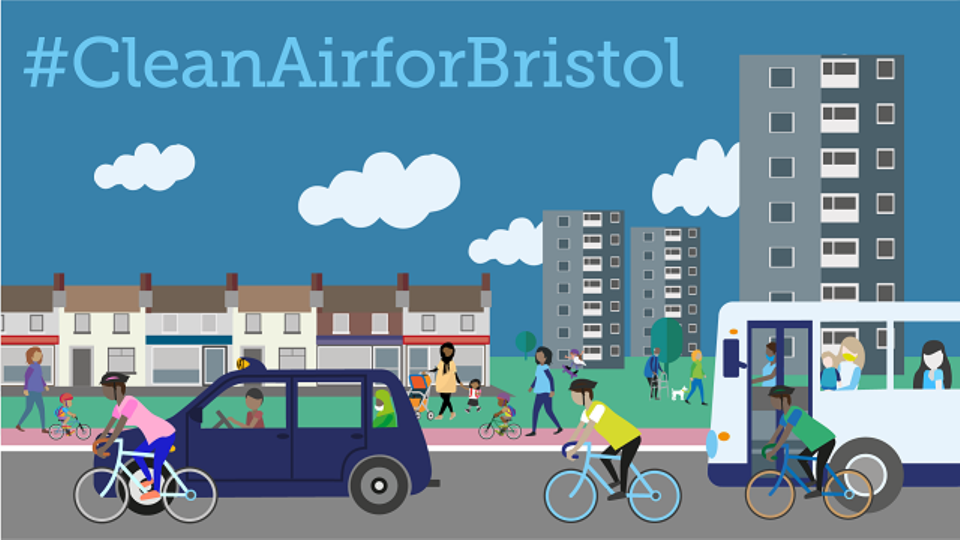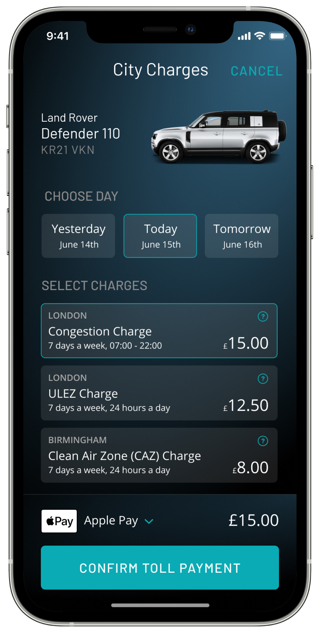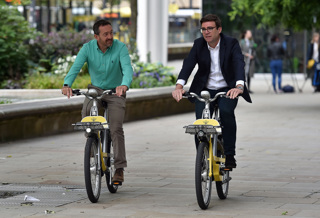The Government has backed Bristol’s clean air zone (CAZ) plans with £42 million of funding available for greener transport initiatives, including helping local fleets upgrade vehicles.
The CAZ will launch next summer enabling Bristol to meet clean air targets in 2023 with the city one of a number mandated by the Government to tackle air pollution.
Bristol Mayor Marvin Rees says he is committed to reducing air pollution but he also wants to minimise any disproportionate impact on businesses and residents.
While around 71% of vehicles in Bristol are already compliant so won’t have to pay to enter the zone, the approved plan includes measures to help more individuals and businesses switch to cleaner ways of travelling.
Some £2m will be spent on a freight consolidation project to help businesses switch to greener ways of transporting goods and meet the council’s target of 95% of all city centre deliveries made by zero-emission vehicles within 10 years.
The council says that £2.1m of funding has also been allocated to help local bus and coach companies and £32m for businesses to upgrade HGVs, LGVs, taxis and private hire vehicles.
A further £1.8m of loans and grants will be available to help people on low incomes, or those traveling to work/study in the zone, that need to upgrade their vehicles to meet the zone’s emission standards.
Finally, £5.9m will be spent on helping people switch to public transport and make more journeys by walking or cycling with free bus tickets, free electric bike loans and cycle training and a further.
A range of exemptions will be available to give eligible businesses and individuals time to prepare for the zone.
All residents in the zone with a vehicle that doesn’t meet its emission standards can apply for an exemption giving them until the end of 2022 to upgrade their vehicle.
Mayor Rees said: “This is a real win for the city. We are introducing one of the most wide-ranging clean air zones in the UK which will see us not only reduce air pollution but also help people change how they travel, delivering a cleaner, greener and healthier city for years to come.
“We are tackling a climate emergency, but we also have people facing financial crisis. We can’t look at these two things in isolation. We have taken our time to find a way to clean up our air while not adding huge financial strain to people that live and work in our city.”
Exemptions will be available for groups including: people on low incomes travelling into the zone for work; patients and visitors to hospitals in the zone; Blue Badge holders and people with a disabled tax class vehicle or disabled passenger tax class vehicle; community transport providers operating under a Section 19 permit; people with commercial vehicles subject to finance agreements; council-funded buses, minibuses or coaches used as Home to School vehicles; and families who receive Personal Travel Budgets who travel through the zone on their school route.
The news was welcomed by car club Co Wheels as it expands its fleet in the city. Richard Falconer, managing director of Co Wheels, said: “Increased funding and support for green initiatives is key to getting public and private organisations more invested in reducing their carbon footprints.
“Small, incremental changes made by individuals can make a big impact on sustainability efforts. With huge investment from councils going to create clean air zones, universities, business and students have a collective responsibility to keep pollution to a minimum.”























Login to comment
Comments
No comments have been made yet.